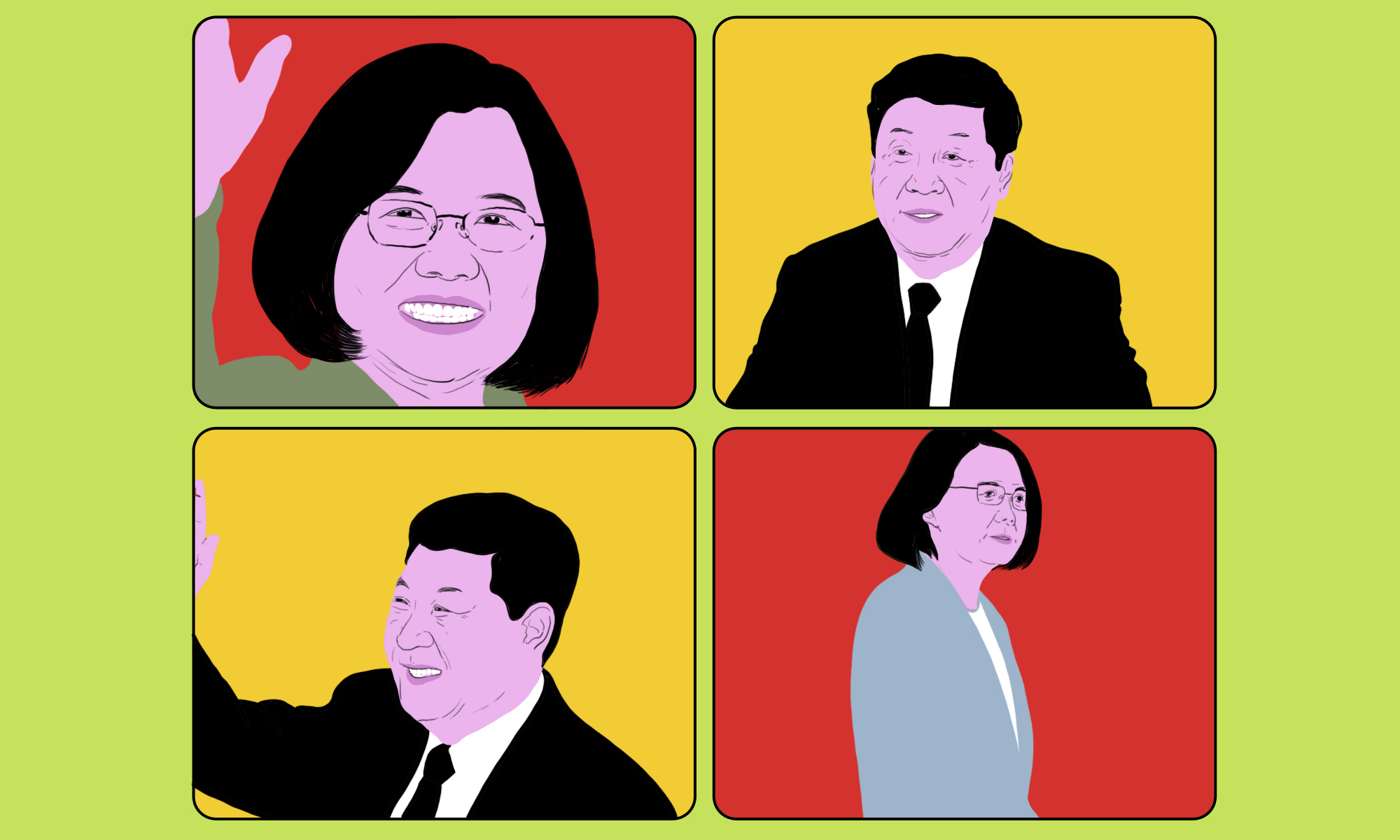Tsai Ing-wen pledges to uphold Taiwan-China status quo amid ‘unprecedented challenges’
Taiwanese President Tsai Ing-wen and Chinese leader Xi Jinping both gave speeches over the weekend that addressed the future of Taiwan. Xi described “Taiwan independence” as a “grave hidden danger” to his future plans, while Tsai insisted, “nobody can force Taiwan to take the path China has laid out for us.”

Over the weekend, the leaders of both the People’s Republic of China and the Republic of China — a.k.a. Taiwan — gave speeches that marked the 110th anniversary of the Xinhai Revolution, which ended imperial rule and gave birth to modern China.
- In mainland China, the day is not normally marked with much fanfare.
- In Taiwan, October 10, or “Double Ten,” is the official national day, celebrated widely, but also not without controversy.
China’s leader, Xí Jìnpíng 习近平, gave remarks (state media report in English, full text in Chinese) that hewed closely to previous talking points about “national rejuvenation” and how he sees Taiwan’s eventual unification with the mainland as an essential part of that.
- Xi emphasized, “The historical task of the complete unification of the motherland must and will be realized,” and described “Taiwan independence” as a “grave hidden danger” (严重隐患) to national rejuvenation.
- However, this is perhaps less harsh rhetoric than his major speech in July when he called unification with Taiwan “an unshakable commitment of the Communist Party of China” and promised to “take resolute action to utterly defeat any attempt toward ‘Taiwan independence.’”
Taiwanese President Tsai Ing-wen (蔡英文 Cài Yīngwén) made a very different speech yesterday (in English, in Chinese) that painted a picture of a nation at once rising in stature and facing increasing, and unprecedented, existential threats.
- “In Washington, Tokyo, Canberra, and Brussels, Taiwan is no longer on the margins, with more and more democratic friends willing to stand up for us,” Tsai said, but with “unprecedented challenges,” she warned, “we do not have the privilege of letting down our guard.”
- “The situation in the Indo-Pacific region is becoming more tense and complex by the day,” Tsai said, citing China’s suppression of freedoms in Hong Kong and challenges to “regional order” in the South and East China Seas.
- “We call for maintaining the status quo, and we will do our utmost to prevent the status quo from being unilaterally altered,” Tsai stated.
- Tsai rebuked “the path China has laid out for us” because it “offers neither a free and democratic way of life for Taiwan, nor sovereignty for our 23 million people.”
- She offered four “bottom line” commitments: To Taiwanese democracy, to cross-Strait dialogue on the basis of parity, against “annexation or encroachment,” and that the future of Taiwan “must be decided in accordance with the will of the Taiwanese people.”
China news, weekly.
Sign up for The China Project’s weekly newsletter, our free roundup of the most important China stories.
In response to Tsai’s speech, a spokesperson for the Taiwan Affairs Office of the State Council in Beijing slammed Tsai (in Chinese) for “inciting confrontation,” claiming that she had “distorted the facts” in an attempt to “kidnap Taiwan public opinion.”
See also:
- Xinhua Commentary: A new warning to Taiwan separatists and their supporters / Xinhua (state media)
- Opinion: Tsai Ing-wen will have to pay a price for her witless provocations / CGTN (state media)
- ‘Starting a Fire’: U.S. and China enter dangerous territory over Taiwan / NYT (paywall)
“The self-ruled island has moved to the heart of deepening discord and rivalry between the two superpowers, with the potential to ignite military conflagration and reshape the regional order.” - China says it carried out beach landing drills in province opposite Taiwan / Reuters
“China’s military said on Monday it had carried out beach landing and assault drills in the province directly across the sea from Taiwan, though it did not link the exercises to current tensions with Taipei.” - China blasts ex-Australian PM Tony Abbott’s ‘highly irresponsible’ Taiwan remarks / SCMP (paywall)
- The moment of truth over Taiwan is getting closer / FT (paywall)
Gideon Rachman writes that “the U.S. and China are engaged in a dangerous game of military poker over the future of the island.”
Correction: This year marks the 110th anniversary of the Xinhai Revolution, not the 100th anniversary, as a previous version of this article stated.






